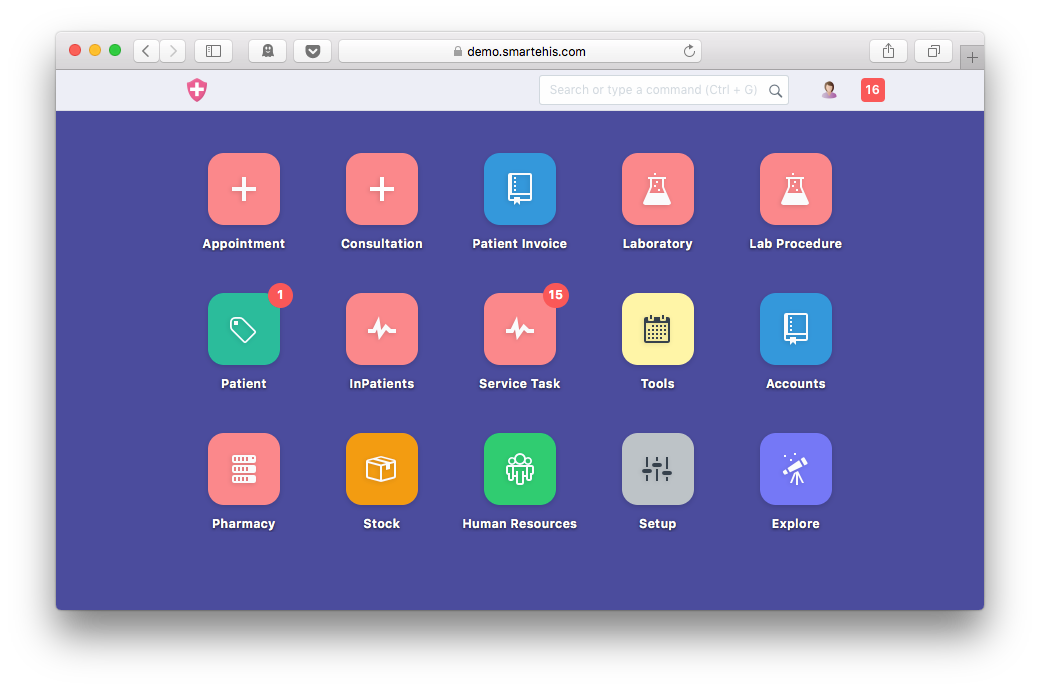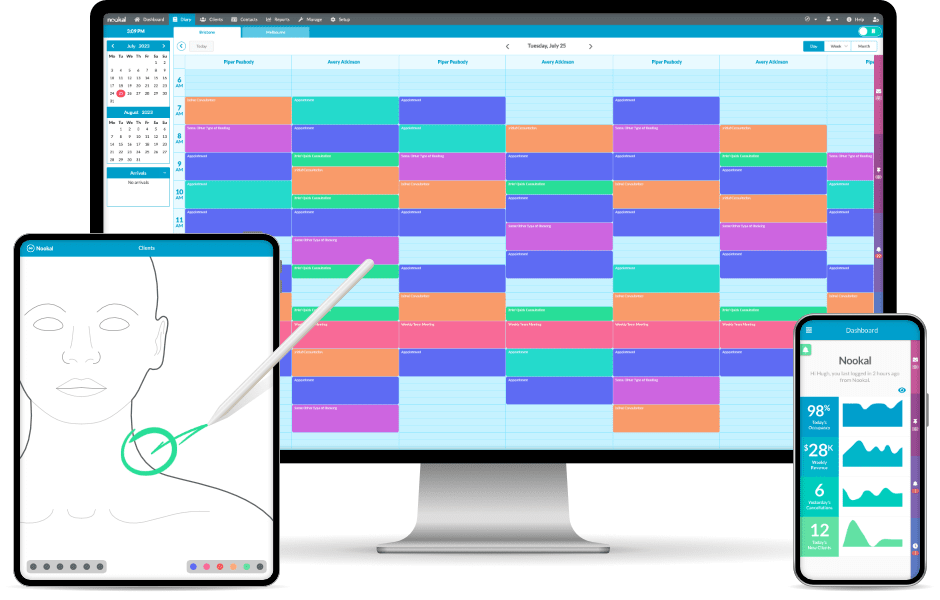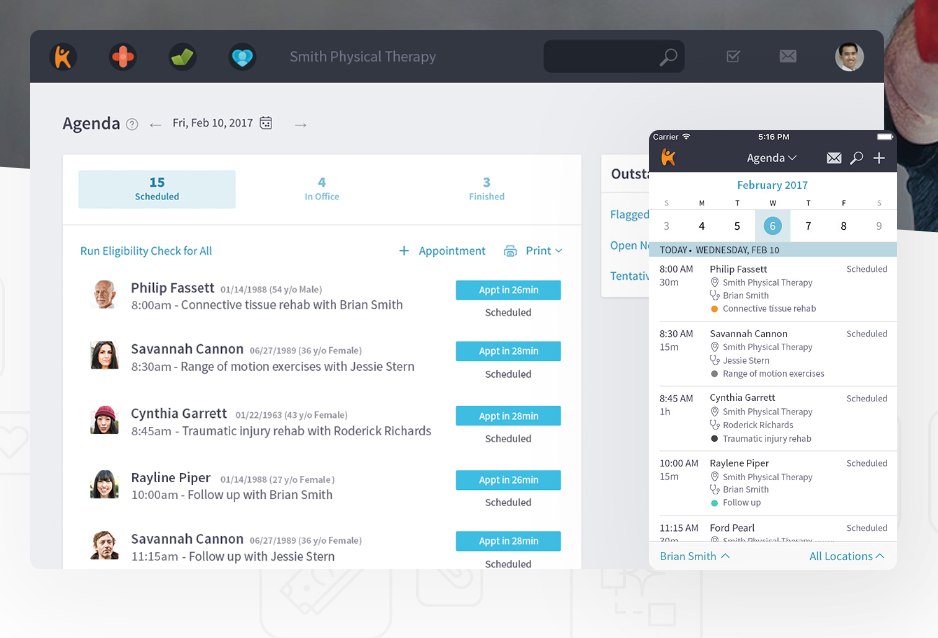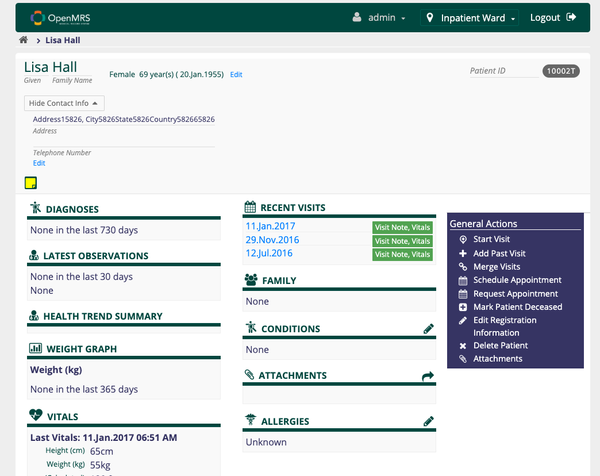Top 9 EMR and Medical Practice Management Apps for Physiotherapy Clinics
Table of Content
EMRs for physiotherapy are specifically designed to address the unique needs of physiotherapists, differing significantly from general EMR systems. These systems offer detailed progress notes, standardized outcome measures, and visual documentation tools to effectively track patient progress.
Customized reports, goal tracking, and compliance features ensure that documentation meets regulatory standards and supports treatment efficacy.
Additionally, physiotherapy EMRs integrate physiotherapy-specific billing codes, manage insurance authorizations, and streamline claims processing to reduce administrative burdens and improve reimbursement rates.
The Lack of Open-Source Physiotherapy EMR Solutions for Linux, Windows, and macOS
Despite the growing demand for specialized EMR solutions in physiotherapy, there is a noticeable lack of open-source options available for Linux, Windows, and macOS.
This gap leaves many clinics reliant on costly proprietary systems or ill-suited generic EMR solutions.
Challenges
- Cost: Proprietary EMRs can be expensive, especially for smaller clinics.
- Flexibility: Generic EMRs may not meet the specific needs of physiotherapists.
- Accessibility: Limited platform support can exclude clinics using diverse operating systems.
Addressing the Issue
- Community Development: Encourage the open-source community to develop and contribute to physiotherapy-specific EMR projects.
- Collaboration: Physiotherapists, developers, and healthcare IT professionals should collaborate to identify key features and requirements.
- Funding and Support: Seek funding from healthcare grants, industry sponsors, or crowdfunding to support open-source development.
- Customization: Create modular and customizable solutions that can be tailored to the specific needs of individual clinics.
Physiotherapists and clinic administrators should advocate for the development of open-source EMR solutions. Join forces with developers and the open-source community to create, fund, and support projects that meet the unique needs of physiotherapy practices.
By doing so, we can ensure that cost-effective, flexible, and accessible EMR solutions are available to all clinics, regardless of their size or operating system.

Why EMR for Physiotherapy is Unique
EMRs for physiotherapy are tailored to meet the specific needs of physiotherapists, distinguishing them from general EMR systems. Here's how they differ:
1. Tracking Patient Progress
- Detailed Progress Notes: Physiotherapy EMRs provide templates for detailed progress notes, including range of motion, strength measurements, and functional assessments.
- Outcome Measures: Integration of standardized outcome measures to track patient improvement over time.
- Visual Documentation: Tools for uploading and annotating images or videos of exercises, enabling visual tracking of patient progress.
2. Reporting
- Customized Reports: Generate reports specific to physiotherapy, such as progress summaries and treatment efficacy.
- Goal Tracking: Document and track patient goals, ensuring treatments align with desired outcomes.
- Compliance and Audits: Features to ensure documentation meets regulatory and compliance standards specific to physiotherapy.
3. Insurance Integration
- Billing Codes: Integration of physiotherapy-specific billing codes (e.g., CPT codes), streamlining insurance claims.
- Authorization Management: Track and manage insurance authorizations and reauthorizations for continued patient care.
- Claims Processing: Tools for efficient submission and tracking of insurance claims, reducing administrative burden and improving reimbursement rates.
Physiotherapy EMRs are designed to support the unique workflow and documentation needs of physiotherapists, ensuring accurate tracking of patient progress, efficient reporting, and seamless insurance integration.
Top EMR and EHR for Physiotherapy Clinics
1. Cliniko
Cliniko is a comprehensive practice management software designed specifically for allied health practices, including physiotherapy clinics. It offers an all-in-one solution for scheduling, billing, and patient management.
Features:
- Appointment scheduling and calendar
- Patient records and notes
- Billing and invoicing
- Online booking
- Telehealth capabilities
Pros:
- User-friendly interface
- Robust reporting features
- Regular updates and improvements
Cons:
- Limited customization options
- Higher pricing for larger practices
2. WebPT
WebPT is a leading EMR and practice management solution designed for outpatient physical therapy clinics. It offers a suite of tools to manage documentation, scheduling, and billing.
Features:
- Comprehensive EMR system
- Patient scheduling
- Billing and revenue cycle management
- Outcomes tracking
- Telehealth integration
Pros:
- Tailored specifically for physical therapy
- Extensive compliance features
- Excellent customer support
Cons:
- Can be complex to set up
- Higher cost compared to some alternatives
3. Physiotec
Physiotec is a software solution focused on exercise prescription and patient management for physiotherapists. It provides an extensive library of exercises and treatment plans.
Features:
- Exercise prescription and management
- Patient records
- Customizable exercise programs
- Integration with other EMR systems
Pros:
- Extensive exercise library
- Easy to use
- Customizable to individual patient needs
Cons:
- Limited features beyond exercise management
- Additional cost for integration with other systems
4. Jane
Jane is an all-in-one practice management software suitable for various healthcare practices, including physiotherapy. It offers scheduling, billing, and online booking features.
Features:
- Appointment scheduling and reminders
- Patient records and documentation
- Online booking system
- Billing and invoicing
- Telehealth services
Pros:
- Intuitive and easy to use
- Strong support and training resources
- Flexible and customizable
Cons:
- Limited reporting capabilities
- Some features require additional fees
5. Nookal

Nookal is a cloud-based practice management system designed for allied health professionals, including physiotherapists. It offers tools for scheduling, billing, and patient management.
Features:
- Appointment scheduling
- Patient records and notes
- Billing and financial management
- Online booking
- Reporting and analytics
Pros:
- User-friendly interface
- Comprehensive feature set
- Good customer support
Cons:
- Can be expensive for smaller practices
- Limited integration options
6. Practice Perfect
Practice Perfect is a practice management software tailored for physical therapy clinics. It provides a complete suite of tools for managing appointments, billing, and patient records.
Features:
- Appointment scheduling
- EMR and patient documentation
- Billing and claims management
- Reports and analytics
- Integration with third-party applications
Pros:
- Extensive features tailored for physical therapy
- Good support and training
- Regular updates and enhancements
Cons:
- Steeper learning curve
- Can be costly for small practices
7. Kareo

Kareo offers an integrated suite of tools for medical practice management, including EMR, billing, and patient engagement. It is suitable for various healthcare specialties, including physiotherapy.
Features:
- EMR and patient documentation
- Billing and revenue cycle management
- Patient scheduling and reminders
- Telehealth capabilities
- Reporting and analytics
Pros:
- Comprehensive feature set
- User-friendly interface
- Strong customer support
Cons:
- Integration can be complex
- Higher pricing for full feature set
8. TM2 by Blue Zinc
TM2 is a practice management solution designed for physiotherapy and other allied health clinics. It offers tools for scheduling, billing, and patient records.
Features:
- Appointment scheduling
- Patient records and documentation
- Billing and financial management
- Reporting and analytics
- Online booking
Pros:
- Tailored for physiotherapy clinics
- Good reporting features
- Reliable customer support
Cons:
- Can be expensive for small practices
- Interface can be complex for new users
9. Power Diary
Power Diary is a practice management software designed for q clinics, including physiotherapy practices. It offers a range of features for managing appointments, billing, and patient records.
Features:
- Appointment scheduling
- Patient management and records
- Billing and invoicing
- Online booking system
- Telehealth integration
Pros:
- Easy to use and navigate
- Comprehensive feature set
- Good value for money
Cons:
- Limited customization options
- Some features may require additional training
Final Note
Physiotherapy EMRs provide specialized tools and features essential for effective patient care, progress tracking, and administrative efficiency. These tailored solutions are highly recommended for physiotherapy clinics looking to enhance their practice management and patient outcomes.
These EMR and practice management solutions provide various features tailored to the needs of physiotherapy clinics, helping improve efficiency, patient care, and overall practice management.










